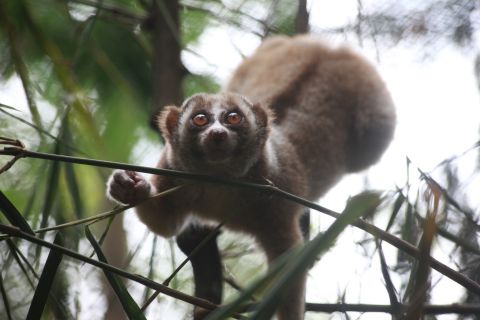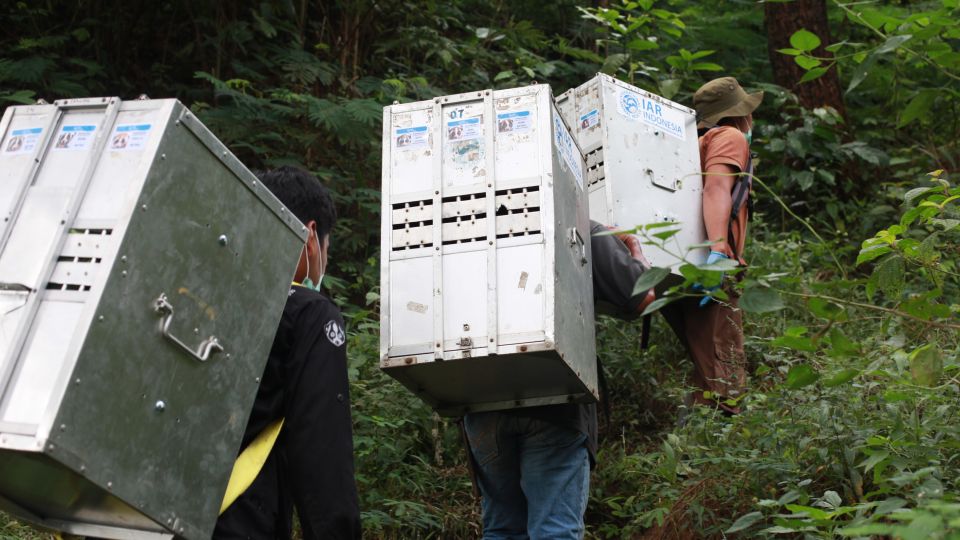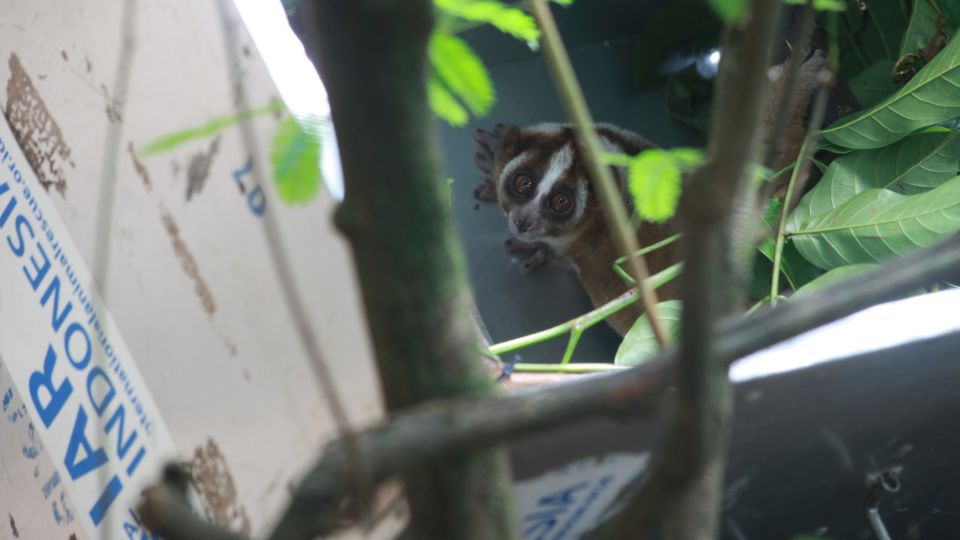
On Saturday 27 May, 17 rescued Javan slow lorises (Nycticebus javanicus) were released back to the wild in the mountainous forest habitat of Ciremai Mount National Park (TNGC.) The ten female and seven male lorises were confiscated from the online wildlife trade back in January by Directorate General of Law Enforcement Ministry of Environment and Forestry of Indonesia and Police Resort in Cirebon, West Java.
The total number of lorises rescued was 19, but two individuals (one infant and one adult) died after arrival at our Rehabilitation Centre in Bogor from poor health conditions.
The release was a joint effort by The Directorate General of Law Enforcement Ministry of Environment and Forestry of Indonesia, our team at the Primate Rescue and Rehabilitation Centre, Natural Resources Conservation Centre (BBKSDA) West Java, and Ciremai Mount National Park.
Veterinarian, Dr Nur Purba Priambada, described the lorises at the time of rescue as stressed, dehydrated and malnourished as a result of the cramped cages and poor diet.

Slow lorises are a shy, nocturnal primate protected by Indonesian Law no. 5 of 1990 and Government Regulation no. 7 of 1999. They are threatened with extinction through habitat destruction, hunting, and the illegal wildlife trade. They are included on Appendix I of the Convention on International Trade in Endangered Species (CITES) which bans all forms of international trade in the species.
Releasing lorises into TNGC is one strategy to maintain and increase the loris population in the wild. A tropical rainforest ecosystem spanning approximately 15,500 hectares, TNGC is also a conservation area helping to protect the survival of threatened species like the slow loris.
Programme Manager, Robithotul Huda, says that the wildlife trade plays a major role in driving the slow loris to extinction.
“Given the principle of supply and demand, people buying and owning slow lorises will just encourage hunting to continue. We strongly appeal to the community never to buy or own slow lorises and not to exploit these primates by keeping them as pets,” he said.
Huda also explained that, although the number of lorises displayed in the live animal markets has been reduced, this type of solitary primate is widely sold and bought through online groups. Unfortunately, online wildlife trade cases are increasing in Indonesia.

“From our 2016 monitoring results, among 50 Facebook groups buying and selling animals, there were 625 lorises for sale. There are also still hundreds of other groups buying and selling animals,” he said.
According to Huda, with the current rampant wildlife trade, law enforcement efforts against protected wildlife criminals can be one effective deterrent against perpetrators.
“We encourage and support law enforcement efforts, as well as tough sanctions against the traders and owners of protected wildlife in Indonesia. Widespread education and awareness is also an important tool to fight the illegal wildlife trade, “he added.
Investigator from Directorate General of Law Enforcement Ministry of Environment and Forestry of Indonesia, Dedi Sunardi said: “Seventeen slow lorises were secured from the perpetrator, an online trader with the initial A from Cirebon. Currently, the legal process involving A is still ongoing at the District Court of Cirebon. “

